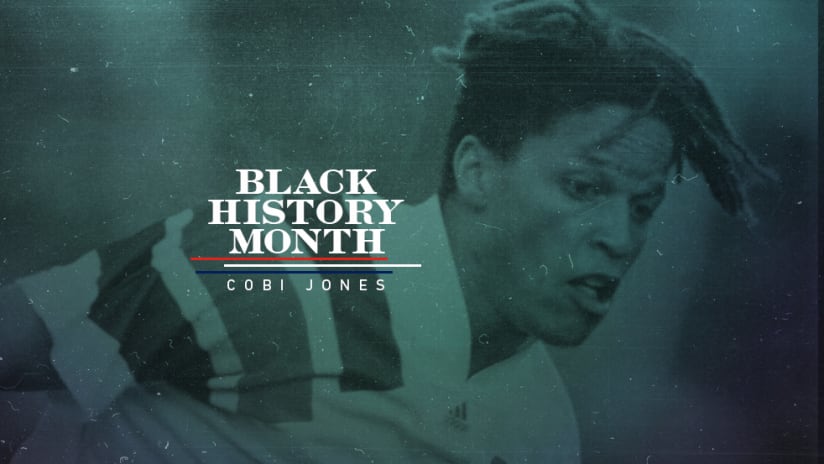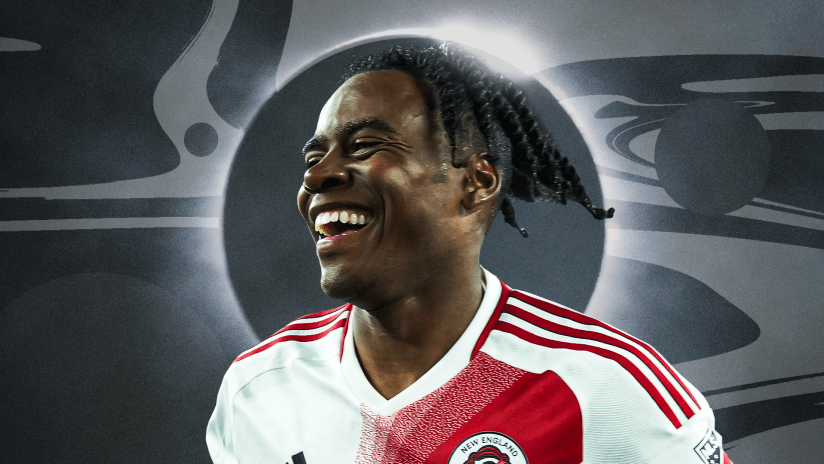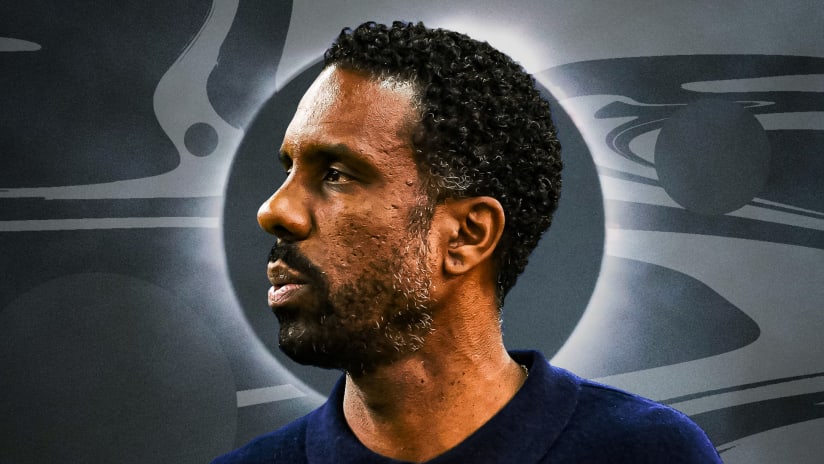EDITOR'S NOTE: This year, MLS and its community outreach initiative, MLS WORKS, launched a new platform, called "Soccer for All." Soccer for All signifies that everyone is welcome to MLS, regardless of race, color, religion, national origin, gender, disability, sexual orientation or socioeconomic status. MLS embraces the diversity of our league and is committed to ending discrimination by driving positive social change and fostering more inclusive communities.
Cobi Jones is not soccer's Jackie Robinson. He wasn't the first African-American to take to an American pro soccer field, not by a stretch. Nor was he the first Black player to make a significant impact on the field for the U.S. national team. (Joe Gaetjens, we see you!)
But a case can be made - and I will happily make it - that Jones was the first Black soccer player in America to be both talented enough and visible enough to inspire other African-Americans to get into the game.
Like many Americans, my older brother and I were introduced to Jones in the summer of 1994, when the World Cup party came to the United States for the first time. That year, the U.S. team and its cast of characters broke into the mainstream consciousness like no other team before or, arguably, since.
Alexi Lalas, with his long red hair, bushy beard, and acoustic guitar. Eric Wynalda, who scored that incredible freekick goal to earn a draw with Switzerland that let everyone know we weren't going to be pushovers. Tony Meola, Claudio Reyna, Tab Ramos, and Johnny Harkes - all dripping with North Jersey soccer swagger.
And then there was Cobi Jones.
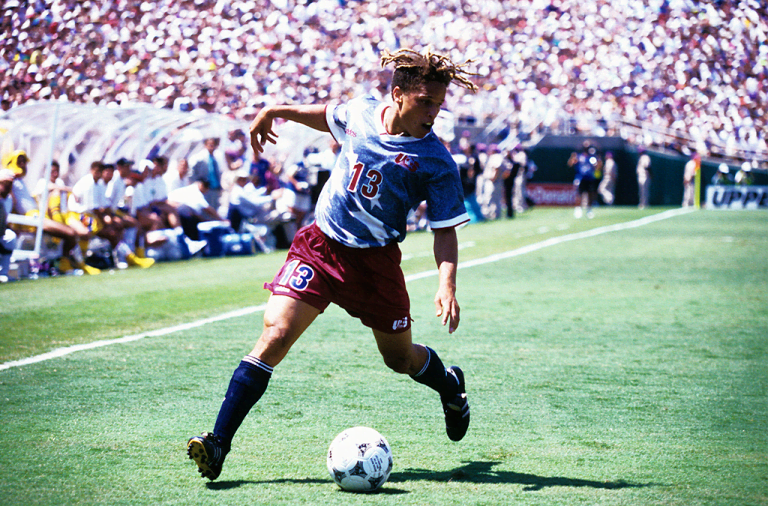
Cobi Jones in action against Romania during 1994 World Cup | Richard Mackson-USA TODAY Sports
An arresting mix of catch-me-if-you-can speed, impeccable skill and iconic dreadlocks, Jones was instantly intriguing. Watching him come on as a late sub vs. Switzerland, my brother and I locked eyes and both said something to the effect of: "Yo, who is this dude?!"
It may sound extra in the era of Jozy Altidore, but for us two soccer-loving Black kids in Texas, Cobi Jones was a near-deity at that time. To give you an analogy rooted in the era, he was the sporting equivalent of Living Colour (the rock band) and In Living Color (the sketch TV show).
He was someone who looked like us doing stuff we'd never really seen people who looked like us doing.
Alongside pro skater Steve Steadham and ska-punk outfit Fishbone, Jones was the third point of light in our little Holy Trinity of weird Black guy idols. It's not that we didn't like soccer - or skateboarding or rock music - until we saw them do it; it just made us feel normal for once to see someone other than us do it.
Representation counts.
Suddenly that summer I was out kicking a ball for the first time since I was 11. It was only pick-up - the options for organized soccer for an 18-year-old after a seven-year absence from the game are limited - but I didn't care. I was back on the field and with zero hang-ups about it. I was also now buying any soccer magazines I could get my hands on, meticulously combing through them for details on the imminent launch of MLS; with the World Cup over, I needed a new way to get my Cobi fix.
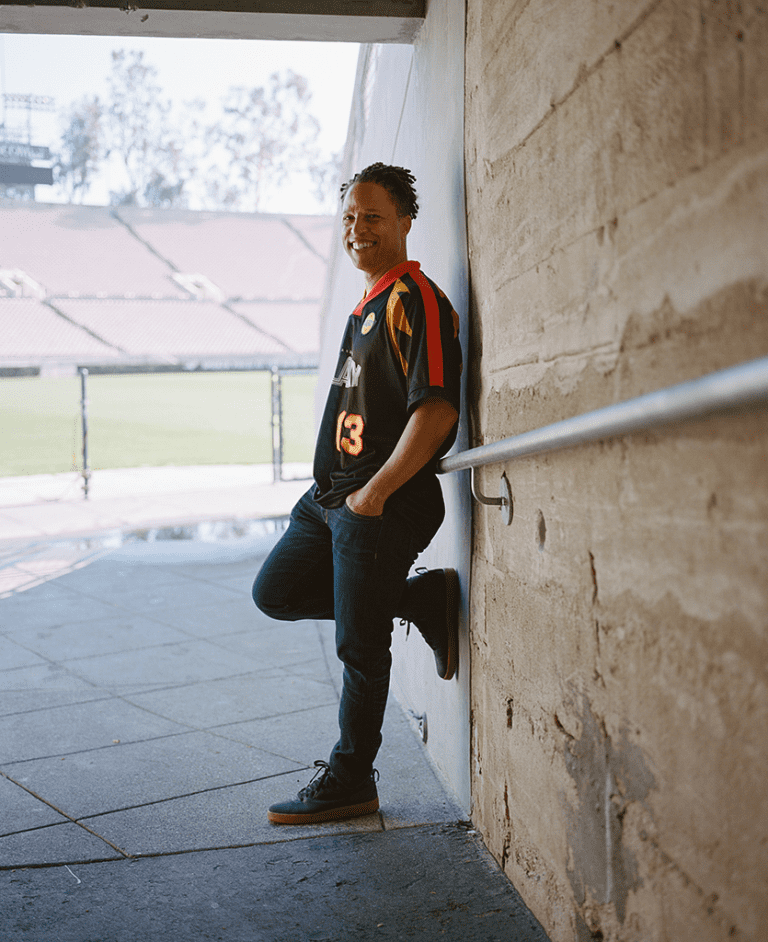
Jones: "I was never the type to say 'Look at me! I'm your role model.'"" | Hana Asano/@hanaasano - LA Galaxy
The thing with Cobi Jones, though, was that he didn't just do it. He did it damn good. Cobi's resume is so thick with accomplishment that you would be foolish to accuse him of being an icon on skin-tone alone.
Internationally, he repped the U.S. at the Olympics and at three World Cups. Before he was done, he earned 164 caps, a record that still stands despite Landon Donovan's best efforts to catch him.
On the club front, Jones played a record 392 games for the Galaxy, his only MLS club. He notched 76 goals - including the club's first - and 104 assists, and before retiring in 2007, he won two MLS Cup trophies, two Supporters Shields, a U.S. Open Cup, and a CONCACAF championship.
Simply put, the man produced.
But the record books will never account for what he did to help produce a new generation of African-American soccer players and fans.
Getting Jones to talk about his position as a role model has never been an easy task. Gregarious but never one who seemed comfortable being the center of attention, he always preferred to let his game do the talking.
Until now.
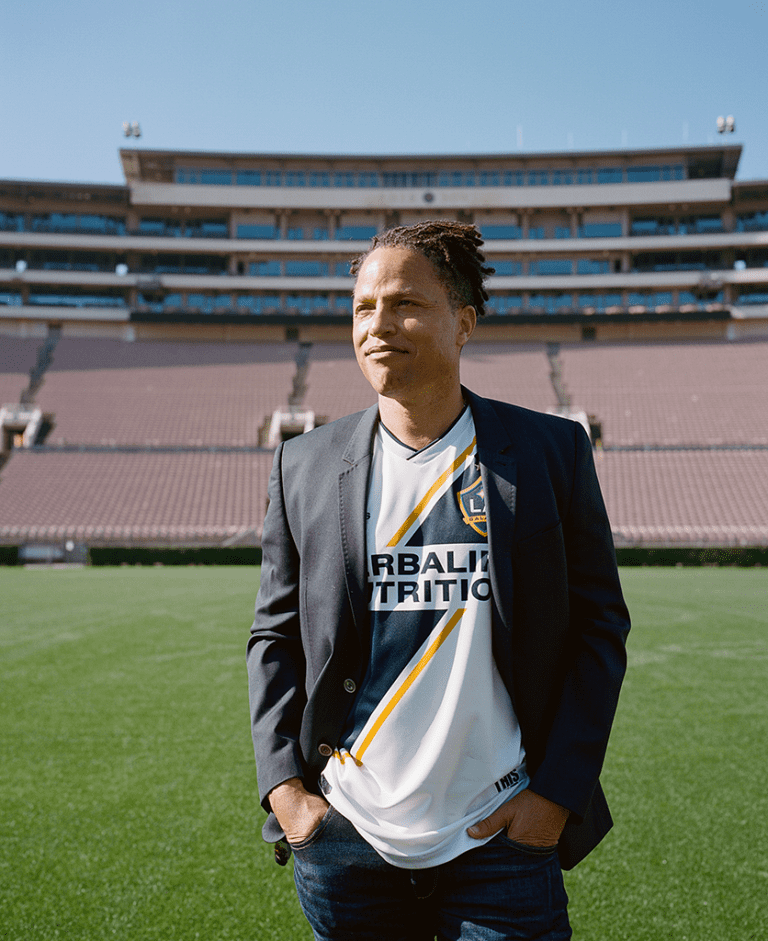
Cobi Jones is currently the lead soccer analyst for Spectrum SportsNet in LA | Hana Asano/@hanaasano - LA Galaxy
"I never talked about it much, but I think right now, in the times we're living in, it's important to," Jones recently told me. "We're going through a watershed time in this country. And now some things that didn't have to be said in the recent past need to be said out loud today."
Things like how the representation of people of color in administrative roles needs to improve. How the economic barriers to high-level youth soccer can limit the opportunities for Black and Hispanic kids. How American soccer's traditional suburban development pathway, so at odds with development pathway in the rest of the world, is probably hamstringing the game's potential here.
In many ways, by speaking out, Cobi is once again acting as a north star for people. It isn't easy now, just as it wasn't easy when he was trying to just be part of a team. But, as always, the man produces.
"You feel that you are different, but you also feel that you have a responsibility to hold yourself in a certain way," he says of being a role model. "I always wanted to make sure that I carried myself with a certain amount of self-respect that was evident."
"I was never the type to say 'Look at me! I'm your role model.' But I always had a sense of what I was representing. I wanted others to see what I was doing and know that they could do it as well."
SHAWN FRANCIS is the founder of the pioneering The Offside Rules soccer blog, a co-founder of Asbury Park FC and a long-suffering New York Red Bulls fan.

